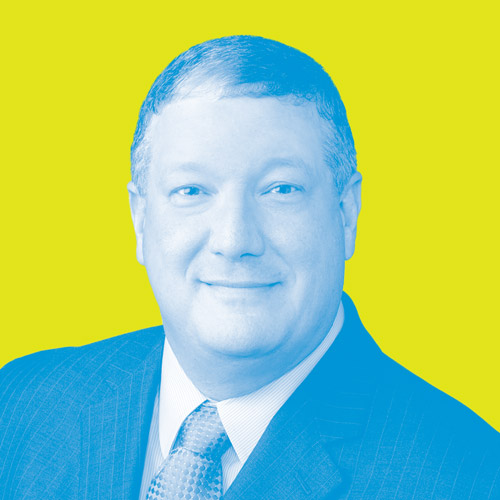As an attorney and certified public accountant with nearly forty years of experience, Richard G. Fishman is knowledgeable in virtually every aspect of the complex field of tax law. He’s taken these years of expertise to Albemarle Corporation, an innovative leader in the global specialty chemicals market that develops and manufactures technologically advanced and high-value-added products. As vice president of tax and chief tax counsel, he now presides over a tax department that has more than tripled in size since he took the helm.
Growing up in New Jersey, Fishman discovered his passion for tax law when he was just an undergraduate student working at his father’s CPA firm. “Early on, I found tax issues both interesting and challenging,” Fishman recalls. “So I took some tax courses at Rutgers and continued in that direction when I went to Yale.”
Fishman now holds a master of law degree in taxation from New York University, a BA degree in economics from Rutgers College, and his juris doctor degree from Yale University. After graduating, he became a tax associate at Stroock & Stroock & Lavan LLP, and later at Roberts and Holland LLP. “It was at Roberts and Holland where I dealt mostly with highly technical areas and wrote many articles about a variety of international tax issues,” he says. “After five years, I went to work at Spicer & Oppenheim in the international tax arena as well, and eventually became a partner of the firm.”
Fishman’s career path includes his eighteen-year tenure at Honeywell International Inc., where he served as the director of international taxation and associate general tax counsel. “That solidified in the corporate side my interest in global and international tax laws,” he says.
Having joined Albemarle Corporation in 2006 as the director of tax and chief tax counsel, Fishman was later promoted to vice president of tax and chief tax counsel in 2007. He became vice president, treasurer, and chief tax counsel in 2009, serving as both treasurer and head of tax for a little more than five years. During that time, he was also the interim chief financial officer for more than five months and an adjunct instructor at Louisiana State University from 2010 to 2012. “I’ve discovered that, no matter where you work, one of the main challenges that tax people often have is how to talk to non-tax people in a way that they understand,” he explains. “I have learned to do that.”
When Fishman started at Albemarle, the tax department was composed of only five employees. But he was soon given the green light to rebuild the department in a way that added value to the company. “I presented to the board a proposal of what a world-class tax department structure would look like and why they should spend the money to create it,” he says. “They agreed, and we ultimately established a department that in-sources most of the work, not only the accounting and the compliance issues, but also most of the tax planning, mergers and acquisitions, transaction taxes, property taxes, and more.”
The company’s tax department now has twenty-three employees, some of whom are located abroad. “We have grown in geographic footprint so we have more tax people on a global scale,” he says. “At the same time, we have a better communication line and can keep information flowing from the different businesses to the tax department.”
Fishman has been in charge of a number of transactions ranging from $25 million to $8 billion, one of which was Albemarle’s acquisition of Rockwood (valued at roughly $6.2 billion) in 2015. The transaction brought together two of the world’s leading specialty chemicals producers.
“I was one of the first people in the company to know about it and that spoke a lot about the value that the company places on the tax department,” he says. “The fact that they brought us in at the very early stages of the deal was crucial. We helped them to integrate the two companies in a harmonious way.”
It wasn’t an easy task, Fishman acknowledges, since Rockwood had “double the number of legal entities that Albemarle had, and the combined company had double the number of tax problems.” The main challenge was combining two different cultures and philosophies regarding how the tax departments should function.
“We have a centralized approach that is applied consistently in the global market and theirs was mostly decentralized,” he says. “Dealing with these totally different approaches created a lot of learning experiences for all the people involved, but in the end we made it work.”
Looking back on his career, Fishman identifies a pattern: his willingness to tackle new challenges, make sustainable contributions to corporate performance, and always being accessible to his team and others in the company. “I’ve always had a strong desire to improve the company’s tax department, either by building it as I did in Albemarle or by working with tax laws on a global scale as I did at Honeywell,” he says. “My goal is to create a solid structure that can handle difficult things when they come up. In the end, I strive to do the right thing—both in my personal and professional life—so I can sleep at night.”

